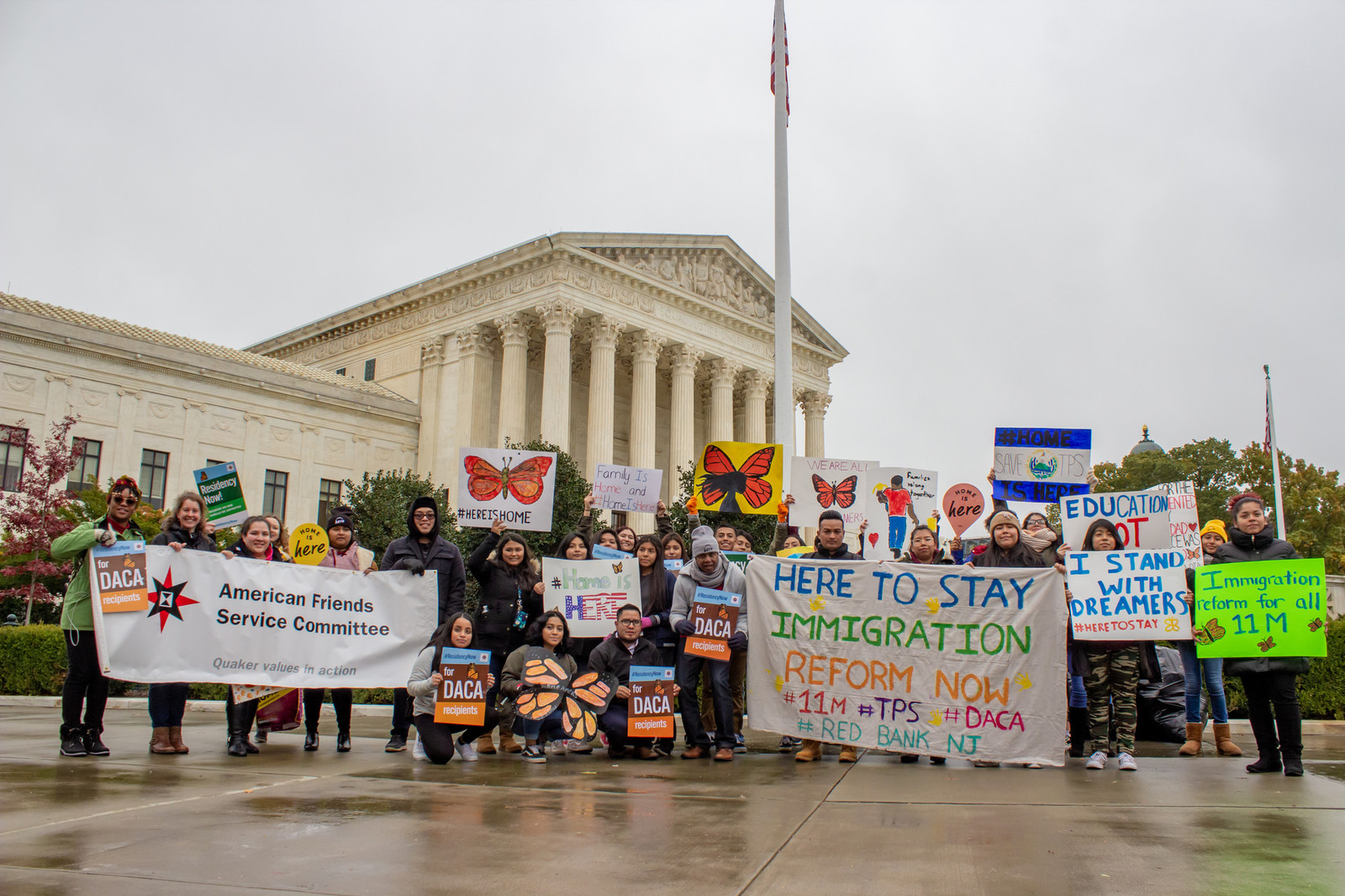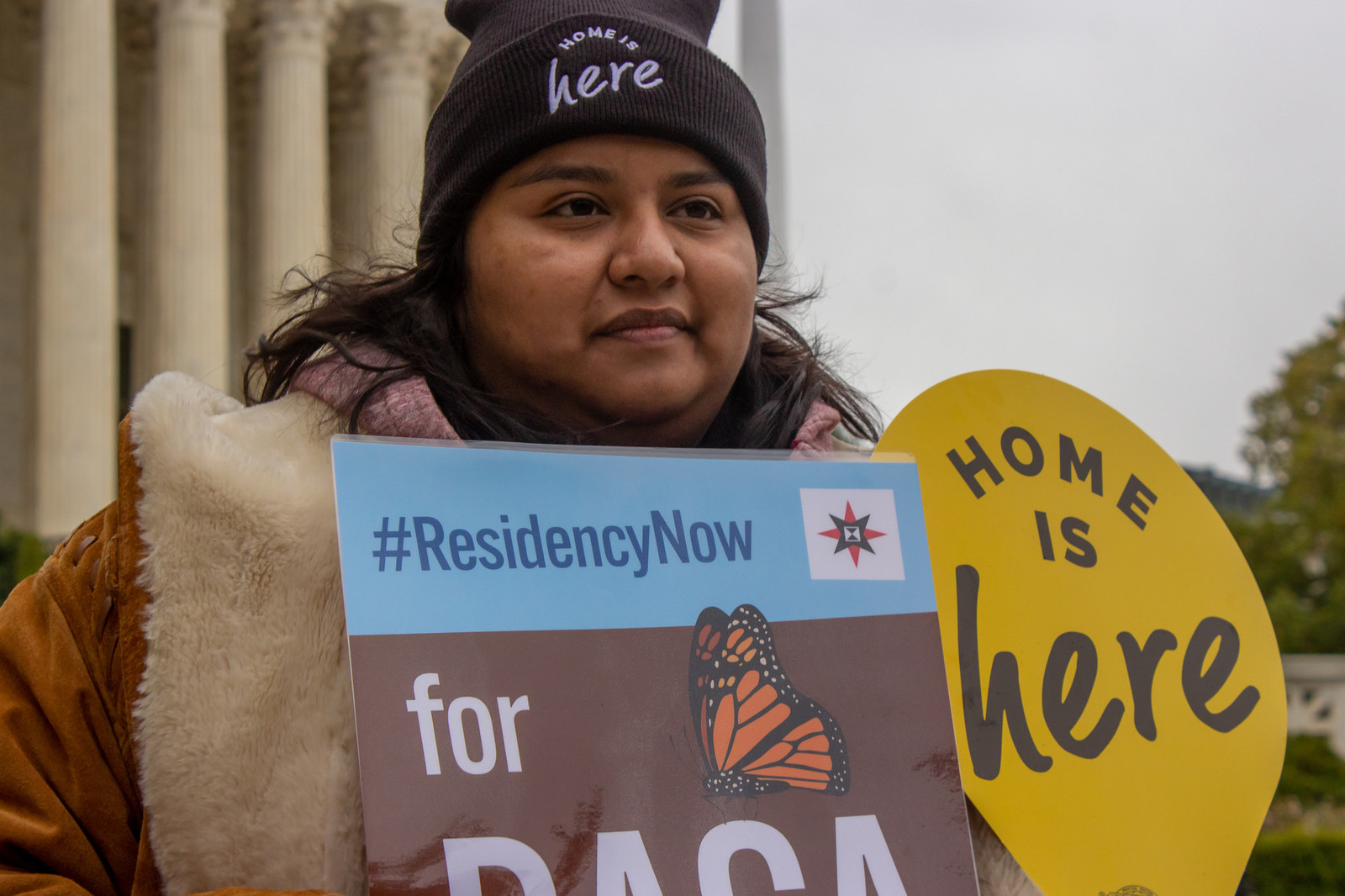
In September 2023, a federal judge in Texas ruled against the Deferred Action for Childhood Arrivals (DACA) program. This decision leaves nearly 600,000 people with this temporary status in limbo, yet again.
While current DACA recipients can continue to renew their status, no new applications are being accepted—putting many immigrant youth at risk.
Most DACA recipients—now an average age of 29—have waited years for a pathway to permanent status in the U.S. Time and again, they have had to deal with threats to end the program. Despite these challenges, many DACA recipients now have families of their own. Many also have established careers and collectively contribute billions of dollars every year to our local and national economies.1
The most recent case will be appealed to the Fifth Circuit Court and will likely make it to the Supreme Court for a final decision in 2025. But today, our neighbors and communities cannot continue to wait in uncertainty.
Only legislation from Congress—not litigation—will provide permanent protections for DACA recipients, immigrant youth, and all 11 million people without status in the U.S.
Tell Congress: Create a roadmap to citizenship for DACA recipients and all immigrants!
Here’s what you need to know about what’s happening with DACA:
1. The most recent court decision will not immediately impact current DACA recipients. However, the government will not approve any new applicants.
Federal Judge Hanen once again ruled against DACA, concluding that the president had exceeded his authority in creating the program and that this power lies with Congress.
What does this decision mean for people enrolled in DACA?
The recent court ruling does not direct any enforcement actions against current DACA recipients. That means recipients remain protected from deportation and authorized to work. They may also continue to apply for renewal of their status for the time being. However, if a person’s DACA status has been expired for more than a year, they will be considered a first-time applicant and their application will be placed on hold.
What does this mean for new DACA applicants?
The judgment bars the Department of Homeland Security (DHS) from processing first-time DACA applications. DHS can only accept, but not process, new applications. That leaves over 1.1 million DACA-eligible young people at risk for detention and deportation.2
What does this mean for DACA recipients who want to travel outside of the U.S. under what’s known as “advanced parole?”
“Advanced parole” allows DACA recipients to travel outside of the U.S. for educational, employment, or humanitarian reasons. Current DACA recipients can still apply for advanced parole and those who have already been granted advanced parole but haven’t traveled can still do so.
2. DACA has faced multiple legal challenges since its creation.
Here’s a brief—and by no means comprehensive—timeline:
June 2012: DACA was created by President Obama through an executive action, following years of organizing by undocumented immigrant youth, their families, and allies.
September 2017: The Trump administration announced it would terminate DACA, jeopardizing the futures of hundreds of thousands of immigrants and their families.
June 2020: In a 5-4 decision, the U.S. Supreme Court ruled that the Trump administration’s attempt to end DACA was “arbitrary and capricious”—and a violation of federal law. The ruling preserved DACA status for recipients, allowing them to continue to live and work in the U.S. without being targeted for detention or deportation. However, the Supreme Court’s decision was narrow. It did not address whether the creation of DACA was lawful, leaving the door open to challenge DACA in the future.
July 2020: President Trump issued a memo refusing to accept new applications and limited renewal periods for existing recipients.
December 2020: A federal judge in New York ordered the U.S. government to fully restore DACA, reversing the Trump memo. This reopened the DACA program to first-time applicants, returned the renewal period for recipients to two years, and reinstated advanced parole. But this decision was also narrow and did not conclude whether the creation of DACA was lawful.
October 2022: Federal judge rules against DACA under the Obama administration memo, banning the processing of new DACA applications but continues to allow renewals for current recipients.
October 2022: President Biden issues a final rule on DACA to codify the Obama administration’s memo. It did not expand the number of people eligible for DACA or address issues with processing delays or renewals.
September 2023: Federal judge in Texas rules against the Biden administration’s DACA rule. This case will be appealed to the 5th Circuit.
3. The struggle to save DACA is far from over.
The Biden administration will appeal the most recent court decision. In a statement on the recent ruling from Secretary Mayorkas, leader of the Department of Homeland Security (DHS), he states:
“DHS will continue to advocate on behalf of DACA recipients every day, in the courts and through our actions. We stand ready to work with Congress on an enduring solution for our Dreamers.”
This case will likely go all the way up to the Supreme Court within the next two years, but DACA recipients, their families, and our communities cannot continue to wait in uncertainty.
4. Only legislation—not litigation—can provide a permanent solution for DACA recipients and their families.
For decades, hundreds of thousands of DACA recipients and their families have faced uncertainty as the program has continually come under attack. While the Biden administration has pledged to protect DACA, recipients will continue to be vulnerable to political and legal threats until we have a legislative solution that provides permanent protection for them and their families. It’s long past time that we pass legislation that keeps families and communities together!
Tell Congress: Provide permanent protections for DACA recipients and all immigrants!

